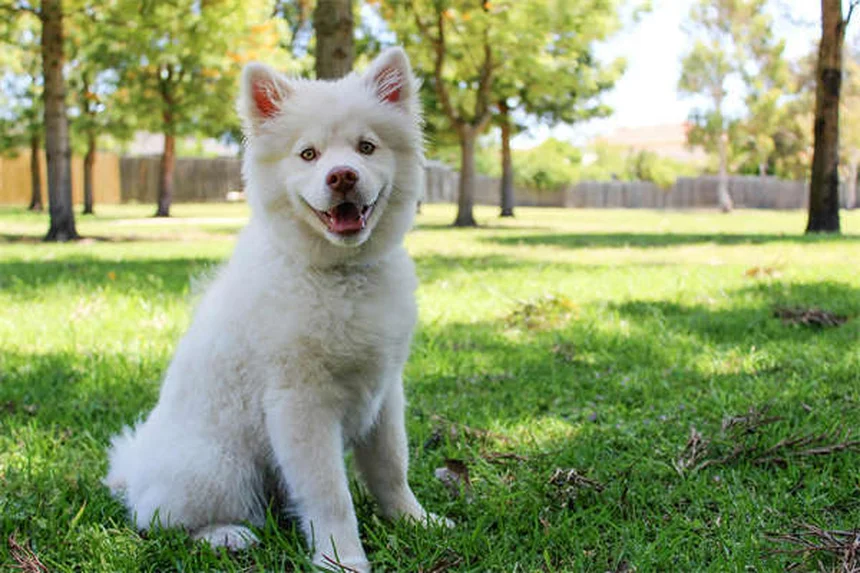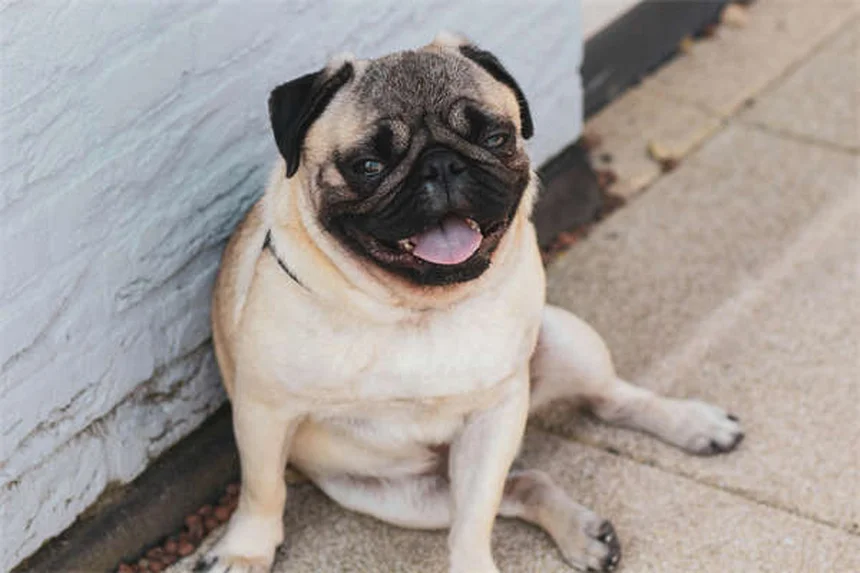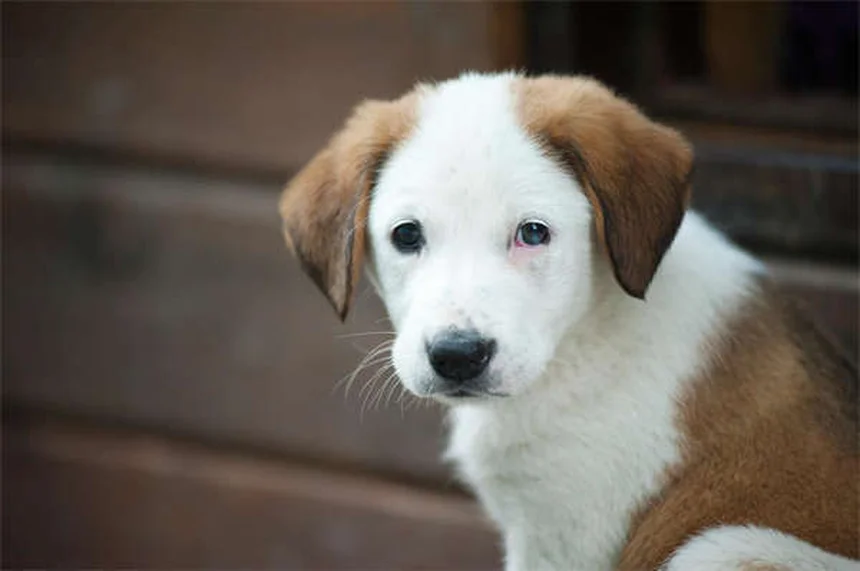Why do dogs sleep so much? The answer is simple: dogs need way more sleep than humans - typically 12-14 hours daily for adults, and up to 20 hours for puppies and seniors! I've noticed my own Labrador spends half his day snoozing, and after researching, I understand why. Sleep is crucial for dogs' physical health, mental wellbeing, and energy conservation. Whether it's a growing puppy, an active working breed, or a senior dog, that precious shut-eye helps them recharge for whatever adventures come next. In this article, we'll break down exactly what makes our canine companions such professional nappers.
E.g. :Top 10 Longest Living Cat Breeds That Stay With You for Decades
Ever notice how your dog seems to spend half their life napping? I mean, who wouldn't want that lifestyle? While we humans struggle to get our 8 hours, dogs are out here mastering the art of relaxation. But why? Let's dig into this cozy topic.
Dogs sleep way more than we do - and there's good reason for it. An adult dog typically sleeps 12-14 hours daily, while puppies and seniors can clock up to 20 hours! That's like sleeping through an entire season of your favorite show... twice!
Just like humans, a dog's sleep needs change throughout their life. Check out this handy table comparing sleep needs:
| Age Group | Daily Sleep Hours | Why So Much? |
|---|---|---|
| Puppies | 18-20 hours | Growing bodies need rest! |
| Adult Dogs | 12-14 hours | Maintenance mode |
| Senior Dogs | 16-18 hours | Aging bodies need recovery |
Now, here's something interesting: Did you know that when your puppy is sleeping, they're not just resting - they're literally growing? That's right! All that adorable snoozing helps their little bodies develop properly. So next time you see your pup conked out, remember - they're working hard at growing up!
 Photos provided by pixabay
Photos provided by pixabay
Not all dogs sleep equally. Some breeds are basically professional nappers! For example:
Greyhounds might be the fastest dogs on the track, but they're also the sleepiest off it - clocking up to 18 hours of sleep daily. Meanwhile, working breeds like Border Collies might sleep less because they're always "on duty" mentally.
Here's a fun fact: Big dogs like Mastiffs tend to sleep more than smaller breeds. Maybe it's all that extra body to maintain? Imagine carrying around that much weight - you'd need extra naps too!
This might surprise you, but your daily routine directly impacts how much your dog sleeps. Active families with hiking trips and dog park visits tend to have dogs who sleep less during the day (but crash hard at night!).
On the flip side, if you're more of a homebody, your dog might adapt to your chill vibes. But be careful - some high-energy breeds can get bored with too much downtime, leading to destructive behaviors or excessive sleeping.
Here's a question many dog owners ask: "Is my dog sleeping too much, or is this normal?" Great question! The answer depends on your dog's baseline. Some dogs are naturally sleepyheads, while others are perpetual motion machines.
Watch for these warning signs that might indicate a health issue:
 Photos provided by pixabay
Photos provided by pixabay
Several medical issues can cause excessive sleep in dogs. Thyroid problems, heart disease, and arthritis pain can all make your pup sleep more. Even depression - yes, dogs get it too - can lead to increased sleep.
Pro tip: If you're concerned about your dog's sleep patterns, keep a sleep diary for a week before visiting the vet. Note when they sleep, for how long, and any changes in behavior. This info helps your vet spot patterns!
You know how you sleep better after a busy, productive day? Dogs are the same! A common misconception is that dogs only need physical exercise. But guess what? Mental stimulation tires them out just as effectively.
Try these brain games:
Here's something funny - sometimes dogs sleep too much because they're not sleeping well at night! Ever heard of the doggy version of insomnia? Senior dogs especially can experience disrupted sleep patterns.
To help your dog get quality rest:
 Photos provided by pixabay
Photos provided by pixabay
Senior dogs often experience something called "sundowning," where they get restless at night and sleep more during daylight hours. It's similar to what happens with elderly humans. Their internal clocks just work differently as they age.
This is totally a personal choice! Some people love the cuddles, while others prefer their space. Just know that if you start letting your dog sleep with you, it's hard to go back! Once they experience that human mattress luxury, their dog bed just won't compare!
Absolutely! Next time you see your dog twitching or "running" in their sleep, they're probably chasing dream squirrels. Research shows dogs experience similar sleep cycles to humans, including REM sleep where dreaming occurs.
Not all dog beds are created equal! Consider these factors:
Dogs thrive on predictability. Try to maintain consistent:
This regularity helps regulate their internal clocks, leading to better quality sleep. And remember - a well-rested dog is a happy dog (and a happy owner too)!
You know that adorable twitching and muffled barking your dog does while sleeping? That's their REM cycle at work! Dogs experience REM sleep just like humans, but their cycles are shorter and more frequent. While we might have 90-minute sleep cycles, dogs complete a full cycle in about 20 minutes.
Here's something fascinating - puppies spend way more time in REM sleep than adult dogs. That's why you'll see them twitch and move more during naps. Their developing brains are processing all the new experiences of puppyhood! Scientists believe this intense REM activity helps with learning and memory formation.
Ever wonder why your dog sleeps in short bursts throughout the day? Blame their wolf ancestors! Wild canids developed this pattern to stay alert for predators and opportunities. Your modern couch potato still carries this evolutionary trait.
Here's a cool comparison between wild and domestic canines:
| Sleep Characteristic | Wild Canines | Domestic Dogs |
|---|---|---|
| Total Sleep Time | 8-10 hours | 12-14 hours |
| Sleep Pattern | Light sleep, easily awakened | Deeper sleep cycles |
| Preferred Sleep Location | Hidden, protected areas | Open, social spaces |
Isn't it wild how domestication changed their sleep habits? Your dog feels safe enough to conk out belly-up in the middle of your living room - something their wild cousins would never do!
Here's something you might not realize - your stress levels directly impact your dog's sleep quality. Dogs are incredibly attuned to our emotions. When you're anxious or upset, your pup picks up on those cues and may have trouble settling down.
I've noticed this with my own dog. When I'm working late and stressed, he'll pace instead of napping in his usual spot. But on relaxed weekends, he's out cold within minutes of me sitting down with a book. It's like having a furry mood mirror!
Does your dog follow you from room to room, even when they're clearly exhausted? That's separation anxiety at work. Many dogs will sacrifice sleep just to keep an eye on their humans.
Try this trick: Leave an item of your clothing with your scent near their bed. The familiar smell can help anxious dogs relax when you're not in the same room. It's like a security blanket, but with your personal fragrance!
You ever notice your dog becomes extra cuddly when it's cold outside? That's not just your imagination! Dogs tend to sleep more during winter months. The colder temperatures trigger their instinct to conserve energy.
In summer, you might see the opposite - your dog becomes more active at dawn and dusk when it's cooler. Some breeds will even change their preferred sleeping spots seasonally, moving from warm carpets in winter to cool tile floors in summer.
Here's a question many owners don't think to ask: "Do shorter winter days make my dog sleep more?" The answer is yes! Just like humans, dogs are influenced by daylight patterns. The reduced sunlight in winter can increase melatonin production, making them sleepier.
If your dog seems excessively lethargic in winter, try adding more daytime activity. A brisk walk during lunchtime sunlight can work wonders for their energy levels. And don't forget - seasonal affective disorder affects dogs too!
That adorable curled-up position isn't just cute - it's practical! When dogs sleep in a tight ball, they're conserving body heat and protecting vital organs. It's an instinct leftover from their wild ancestors who needed to stay warm and alert.
Here are some common positions and what they mean:
Pay attention if your dog suddenly changes their preferred sleep position. An older dog who stops curling up might have joint pain. A dog who sleeps sitting up could be having breathing issues. Our pups can't tell us when something hurts, so their sleep habits become important clues!
I once noticed my senior lab started sleeping with his head elevated on pillows. Turns out he was developing arthritis in his neck. A simple orthopedic bed made all the difference!
When you see your dog's paws twitching during sleep, they're probably reliving their day's adventures! Research suggests dogs most commonly dream about:
Fun fact: Small dogs tend to have more frequent but shorter dreams, while large breeds have longer but less frequent dream episodes. No one knows exactly why, but it might relate to their different brain structures!
Here's something important to remember: It's generally best not to interrupt a dreaming dog. While they might look like they're having a nightmare, you could startle them into defensive behavior if awakened suddenly.
Instead, try softly calling their name from a distance if they seem distressed. This gentle approach allows them to wake up gradually. And don't worry - even if they growl or snap in their sleep, it doesn't mean they're aggressive. They're just caught up in their dream world!
E.g. :Why Do Dogs Sleep So Much? – American Kennel Club
A: Puppies sleep up to 20 hours daily because they're literally growing while they sleep! All that adorable napping helps their little bodies develop properly - their muscles, bones, and even brains are working overtime during rest. Think of it like a baby needing naps to grow, but on turbo mode. I remember when my puppy would play hard for 30 minutes then crash for 2 hours. This sleep-play cycle is completely normal and essential for their development. Just make sure they have a cozy, quiet space to recharge those growing batteries!
A: Absolutely! Greyhounds and other large breeds are basically professional nappers, often sleeping 16-18 hours daily. Meanwhile, working breeds like Border Collies might sleep less because they're always mentally "on duty." From my experience, smaller companion dogs like Shih Tzus also love their beauty sleep. The breed's original purpose plays a big role - hunting dogs tend to be light sleepers ready for action, while lapdogs evolved to be excellent cuddle-and-nap partners. It's fascinating how genetics influence their sleep needs!
A: While increased sleep is normal for older dogs, there's a balance. Senior dogs typically sleep 16-18 hours, but you should still see periods of alertness and interest in activities. My 12-year-old Lab sleeps more than he used to, but still gets excited for walks and meals. Watch for warning signs like difficulty waking, missing meals, or sleeping in unusual places - these could indicate health issues. Creating a comfortable sleep environment with an orthopedic bed can help aging joints, and maintaining a consistent routine keeps their internal clock regulated.
A: The key is knowing your dog's normal patterns. Sudden changes in sleep habits - like sleeping several hours more than usual - often signal health problems. I recommend keeping a simple sleep log for a week if you're concerned. Note when they nap, for how long, and any behavior changes. Other red flags include lack of appetite, isolation, or seeming "out of it" when awake. Trust your gut - you know your dog best! When in doubt, a vet visit can rule out issues like thyroid problems, pain, or depression.
A: Creating good sleep habits makes a huge difference! Try these proven tips: establish a consistent bedtime routine (like a short walk followed by calm cuddles), provide a comfortable bed in a quiet spot, limit water before bed to reduce nighttime potty breaks, and ensure plenty of daytime exercise and mental stimulation. I've found puzzle toys during the day help my dog sleep more soundly at night. Remember - a tired dog is a good sleeper, but balance activity with proper rest for optimal health!
Recommended
Top 10 Longest Living Cat Breeds That Stay With You for Decades
Lung Cancer in Dogs: 7 Warning Signs Every Pet Owner Should Know
Heartworm Prevention for Dogs: 5 Must-Know Facts to Protect Your Pet
Essential Cat Vaccines: Core Shots Every Pet Parent Should Know
Rabbit Runny Nose: Causes, Symptoms & Treatment (Vet Approved)
Bringing Home a New Puppy: Essential Tips for First-Time Owners